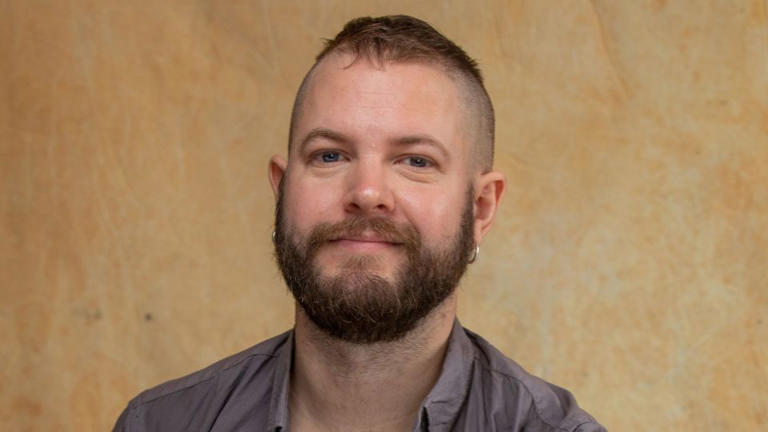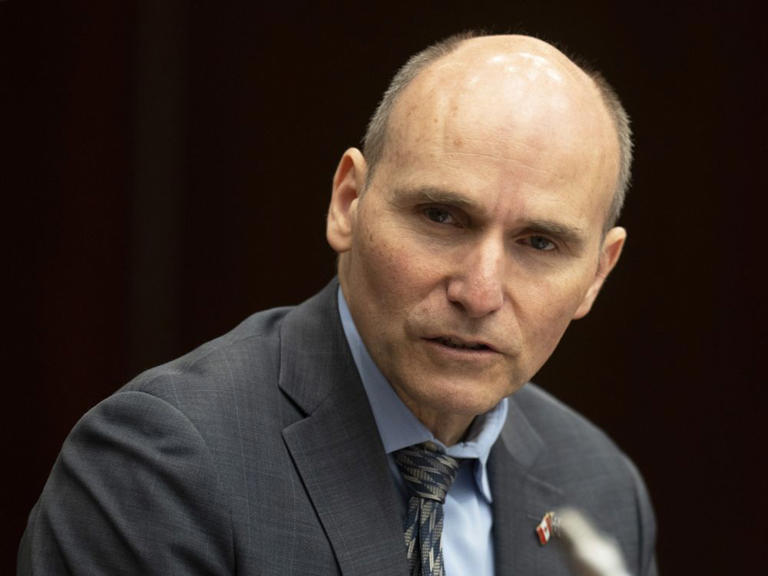Story by Naama Weingarten • CBC
June 3,2023

A raven lands on the roof of a barn as thick smoke from wildfires obscures the sun near Cremona, Alta., on Wednesday, May 17, 2023.© The Canadian Press/Jeff McIntosh
As wildfires keep burning in Alberta, it's not just humans who have to bear the effects.
From birds to mammals to insects, some animals perish, some escape, some grow accustomed to a new habitat — and plenty thrive.
Here's what some wild animals have been through since this spring's extreme wildfire season took off.
Experts say whether wildlife can withstand a fire largely depends on the animal.
University of Alberta biological sciences professor Erin Bayne said larger mammals like wolves, elk, moose and deer can easily run out of a fire's path and find a source of water. Smaller mammals might not be fast enough to get away, but some, like deer mice, will go underground.
"We've never seen catastrophic mortality in the boreal forest of most mammals, simply because they are adapted to deal with it to some degree," Bayne said.
He added that some birds were actually lucky when it comes to the timing of Alberta's recent wildfires, since few had started nesting in early May. But some birds with historical nesting sites who depend on older forests will need to find new homes.
"If this had been [later in May], then we would have had massive destruction of nests and the birds would have had to either bail and not nest that year or probably nest somewhere else and try again," Bayne said.
Wildfire danger also doesn't come just from flames, but from where animals flee. Many find themselves in urban areas where interactions with humans can put them in danger.
Dale Gienow, the executive director of WildNorth, a non-profit that provides care to injured or orphaned wildlife, said there's been a small uptick in the number of animals turned in during the wildfires.
He said he's mostly seen birds and small mammals who have been run over by cars or ended up in people's backyards.
"We don't get a lot of burned animals. Most of those animals unfortunately perish," he told CBC's Edmonton AM.
Post-wildfire recovery won't look the same everywhere.
University of Alberta ecology professor Mark Boyce has co-ordinated research on the aftermath of wildfires in North America. He said it typically takes a year or two until vegetation grows back enough for most wildlife to return. It can take anywhere from four to 12 years for it to reach peak levels ideal for mammals like deer, elk and moose.
Many birds also thrive after wildfires: insects like beetles arrive around the one-year mark to feed on burned trees, becoming a good food source.
Despite its visible destruction, fire is an integral part of Alberta's boreal and Rocky Mountain forests.
"That doesn't make it any less devastating for people who have properties in those kinds of areas," Boyce said. "But fire is a natural part of these ecosystems."
Even if animals aren't specifically adapted to wildfires, many tend to do better in the aftermath.
As trees burn away, they create open access for sunlight to hit the ground, helping different types of vegetation grow and giving animals more food sources.
"There are benefits from a fire going through," Bayne said. "What we're seeing right now, however, is unprecedented."
More than 1.1 million hectares have burned across Alberta so far this wildfire season, making it the second-worst on record with months still left to go. The previous record was set in 1981 when 1.3 million hectares burned.
The 2019 wildfire season also came close to a new record, burning more than 880,000 hectares.
"After years of repeated fires, that makes it very difficult for forested ecosystems to regrow," Bayne said.
He said that if these conditions keep escalating, some vegetation could disappear from Alberta's forests over the next century, and the habitat might become a mixture of grassland and smaller patches of trees.
"It might be premature to say we've crossed that line," he said. "I think this season, if nothing else, is a warning bell."
At a news conference this week, Natural Resources Minister Jonathan Wilkinson said the amount of forest burned by wildfires is projected to double by 2050 due to climate change.
Boyce added it's hard to say what a future with more wildfires will mean for the natural environment.
"Fires are an integral part of the ecosystems," he said.
"But their role will change as a consequence of climate change, and exactly how that's going to roll out, I don't think we fully understand yet."

A raven lands on the roof of a barn as thick smoke from wildfires obscures the sun near Cremona, Alta., on Wednesday, May 17, 2023.© The Canadian Press/Jeff McIntosh
As wildfires keep burning in Alberta, it's not just humans who have to bear the effects.
From birds to mammals to insects, some animals perish, some escape, some grow accustomed to a new habitat — and plenty thrive.
Here's what some wild animals have been through since this spring's extreme wildfire season took off.
Experts say whether wildlife can withstand a fire largely depends on the animal.
University of Alberta biological sciences professor Erin Bayne said larger mammals like wolves, elk, moose and deer can easily run out of a fire's path and find a source of water. Smaller mammals might not be fast enough to get away, but some, like deer mice, will go underground.
"We've never seen catastrophic mortality in the boreal forest of most mammals, simply because they are adapted to deal with it to some degree," Bayne said.
He added that some birds were actually lucky when it comes to the timing of Alberta's recent wildfires, since few had started nesting in early May. But some birds with historical nesting sites who depend on older forests will need to find new homes.
"If this had been [later in May], then we would have had massive destruction of nests and the birds would have had to either bail and not nest that year or probably nest somewhere else and try again," Bayne said.
Wildfire danger also doesn't come just from flames, but from where animals flee. Many find themselves in urban areas where interactions with humans can put them in danger.
Dale Gienow, the executive director of WildNorth, a non-profit that provides care to injured or orphaned wildlife, said there's been a small uptick in the number of animals turned in during the wildfires.
He said he's mostly seen birds and small mammals who have been run over by cars or ended up in people's backyards.
"We don't get a lot of burned animals. Most of those animals unfortunately perish," he told CBC's Edmonton AM.
Post-wildfire recovery won't look the same everywhere.
University of Alberta ecology professor Mark Boyce has co-ordinated research on the aftermath of wildfires in North America. He said it typically takes a year or two until vegetation grows back enough for most wildlife to return. It can take anywhere from four to 12 years for it to reach peak levels ideal for mammals like deer, elk and moose.
Many birds also thrive after wildfires: insects like beetles arrive around the one-year mark to feed on burned trees, becoming a good food source.
Despite its visible destruction, fire is an integral part of Alberta's boreal and Rocky Mountain forests.
"That doesn't make it any less devastating for people who have properties in those kinds of areas," Boyce said. "But fire is a natural part of these ecosystems."
Even if animals aren't specifically adapted to wildfires, many tend to do better in the aftermath.
As trees burn away, they create open access for sunlight to hit the ground, helping different types of vegetation grow and giving animals more food sources.
"There are benefits from a fire going through," Bayne said. "What we're seeing right now, however, is unprecedented."
More than 1.1 million hectares have burned across Alberta so far this wildfire season, making it the second-worst on record with months still left to go. The previous record was set in 1981 when 1.3 million hectares burned.
The 2019 wildfire season also came close to a new record, burning more than 880,000 hectares.
"After years of repeated fires, that makes it very difficult for forested ecosystems to regrow," Bayne said.
He said that if these conditions keep escalating, some vegetation could disappear from Alberta's forests over the next century, and the habitat might become a mixture of grassland and smaller patches of trees.
"It might be premature to say we've crossed that line," he said. "I think this season, if nothing else, is a warning bell."
At a news conference this week, Natural Resources Minister Jonathan Wilkinson said the amount of forest burned by wildfires is projected to double by 2050 due to climate change.
Boyce added it's hard to say what a future with more wildfires will mean for the natural environment.
"Fires are an integral part of the ecosystems," he said.
"But their role will change as a consequence of climate change, and exactly how that's going to roll out, I don't think we fully understand yet."















